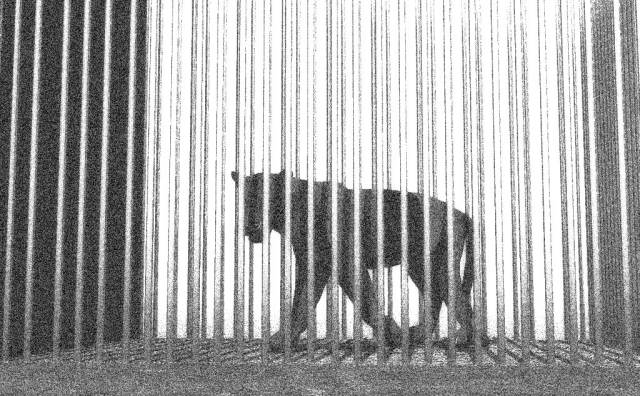Daru is a schoolteacher whose teaching post is located on a plateau near the Algerian desert. The school, which is also Daru’s home, plays an important role for the people of the village. Even when students no longer come, due to winter and severe cold weather, Daru provides grain to those who come and ask for it. The reason for this is because the village had experienced a severe drought, leaving them poverty stricken. Living in an isolated region, Daru doesn’t complain about his conditions. Far away from city life, Daru is happy with little that he has: “In contrast with such poverty, he [Daru] who lived almost like a monk in his remote schoolhouse, nonetheless satisfied with the little he had.” (Camus 2575) I feel that by isolating himself in a school that is far away from the main village, he keeps himself far away from the political arena: deciding whether to side on the French or the Arabs.
But one day, Daru’s life is interrupted when Balducci, an old gendarme, comes riding on a horse with an Arab prisoner tied to a rope and informs Daru that he is to take the Arab to the jail in Tinguit. Upon this information, Daru is surprised and wishes not to get involved in the matter. However, Balducci has official papers indicating that Daru is to carry out such an act. At the end, Balducci leaves the Arab prisoner with Daru, leaving it to him to choose as to what to do with the Arab.
Even though the Arab is labeled as a prisoner, Daru doesn’t treat him like one. Instead, he unties the Arab’s hands and offers him mint tea and food. Daru treats him more like a guest instead of a criminal who has committed the crime of killing a cousin in a family dispute. The two of them, under the same roof have somehow made a bond with each other.
The Arab has all the opportunities to run away (i.e. when Daru seems to be sleeping), but he doesn’t do it. Even in the morning, Daru gives the Arab two choices:
(1) “the schoolmaster said as he pointed in the direction to the east, ‘there’s the way to Tinguit. You have a two-hour walk. At Tinguit you’ll find the administration and the police. They are expecting you’.”
(2) “toward the south….. ‘That’s the trail across the plateau. In a day’s walk from here you’ll find pasturelands and the first nomads. They’ll take you in and shelter you according to their law’.” (Camu 2582)
While Daru gives these two choices to the Arab, he doesn’t influence the Arab into picking one. Daru leaves it to the Arab to make his own decision regarding his life. At the end, it is noble of the Arab to choose the path of the jail. Even though the man is afraid, he still walks on the path that may lead to his death. While some readers may think that it was “stupid” of the Arab to risk his life instead of being free, I for think that he chose the honorable path. The Arab knew he committed a crime and thus he should be penalized for it. However, I feel that there is a deeper meaning to this than just being honorable. There is a conflict between the French and the Arabs, since the French have colonized and taken control of Algeria. By having the Arab go to jail and possibly be killed, the French are trying to instill fear within the Arabs so that they don’t go against the French. At the same time, with the Arab going to his deathbed, it might ager the Arab community, and might possibly be the catalyst that will have the Arabs rebel and fight against their oppressors. The Arab’s message on the blackboard: “You handed over our brother. You will pay for this” depicts the unhappiness of Arabs whose nation is under the French rule. The message is also pointing at people like Daru who aren’t doing anything to fight the French, but are instead teaching about France’s geography (the rivers drawn on the board). Id Daru was indeed a true Algerian, for he “had been born here” then he wouldn’t be teaching the ways of the French but instead should be instilling nationalism and pride of their nation to the children (the next generation).
Posted in Uncategorized | 1 Comment »


